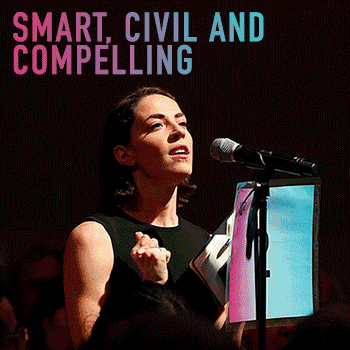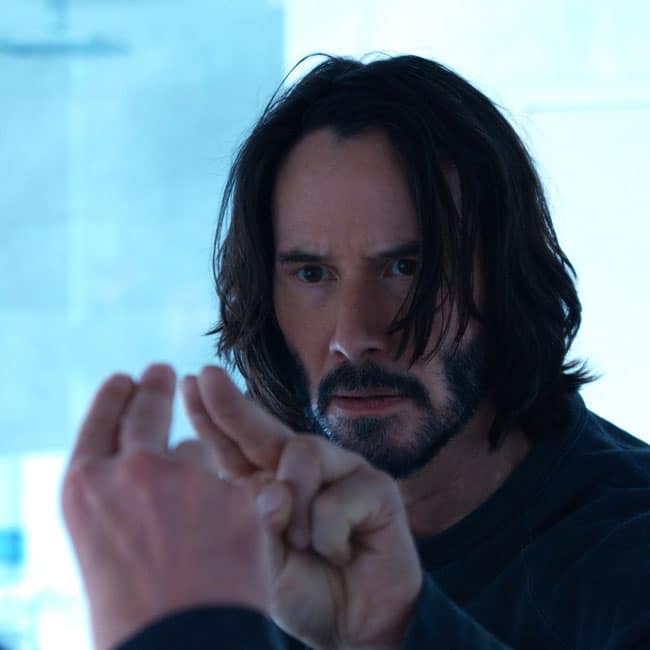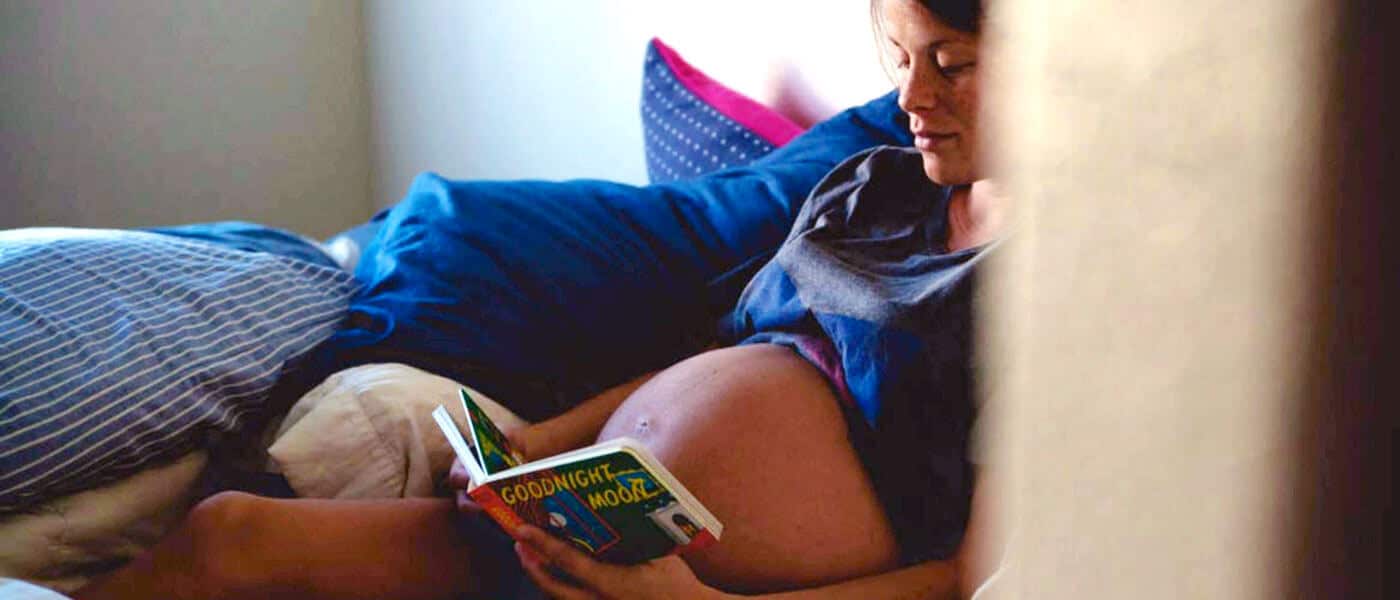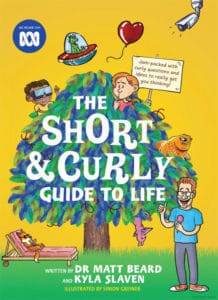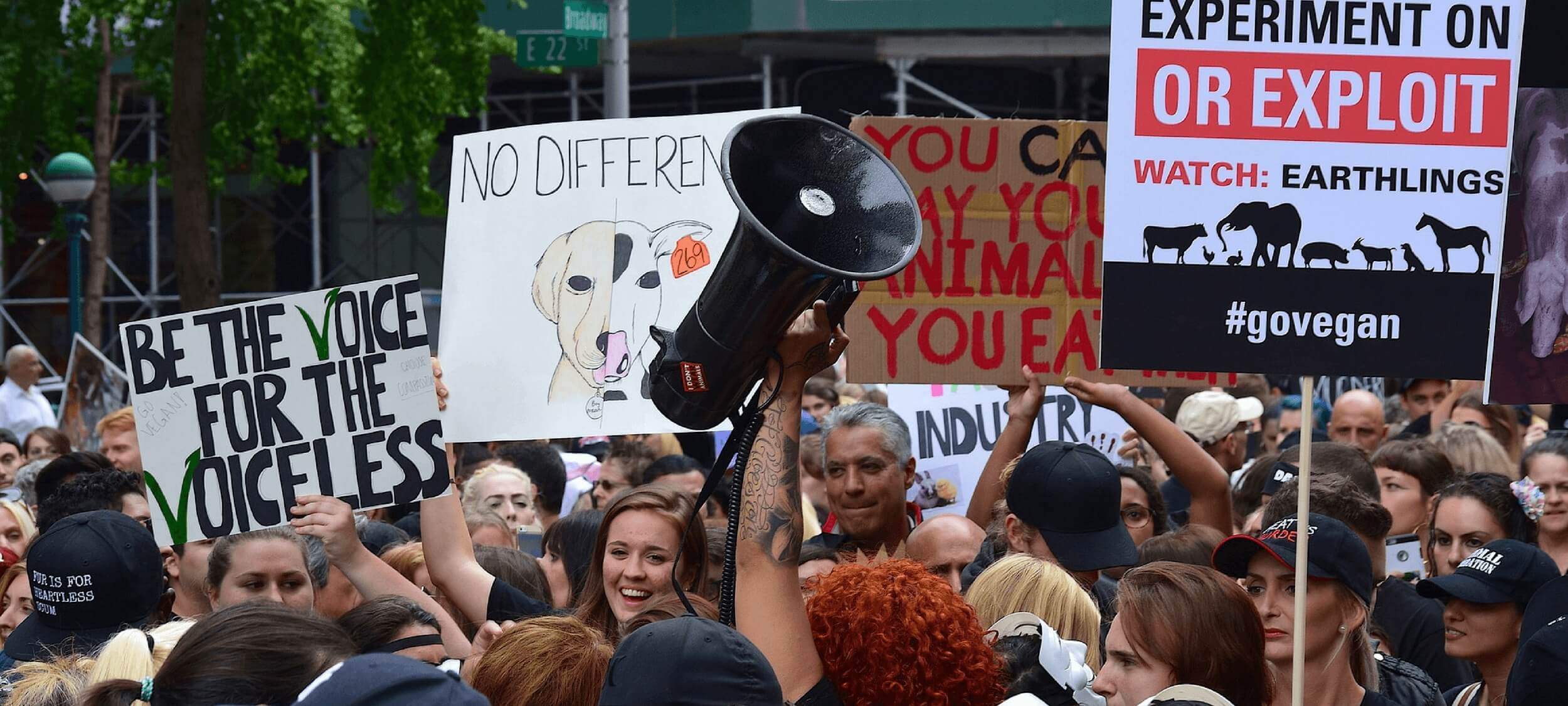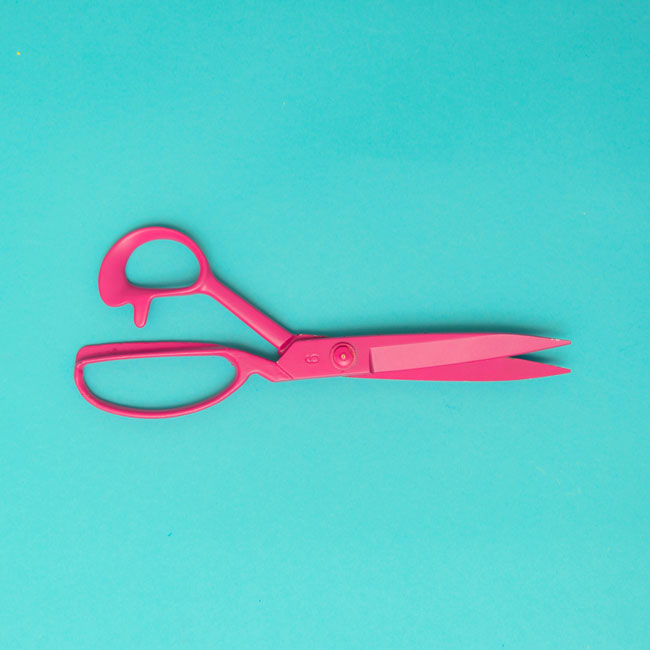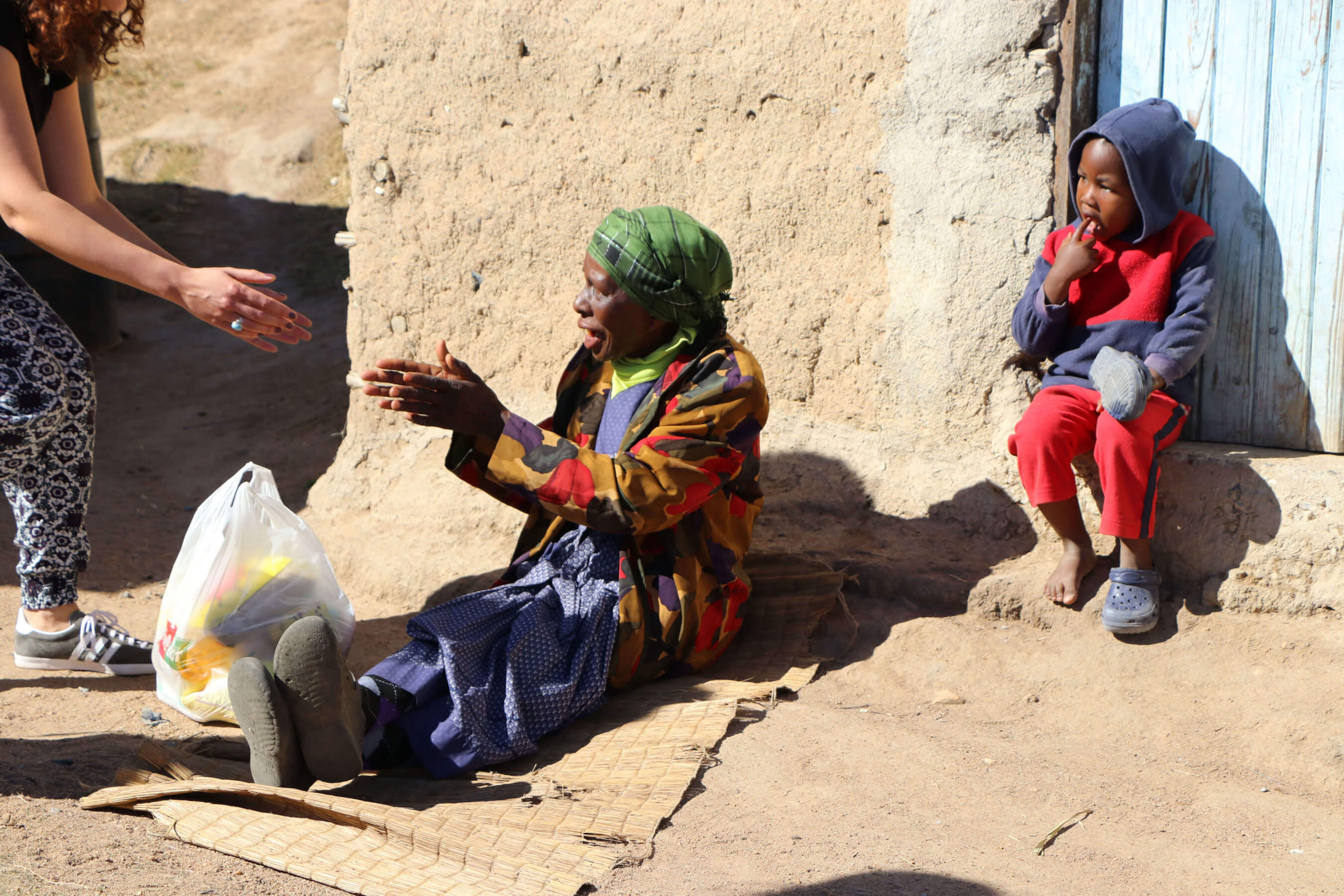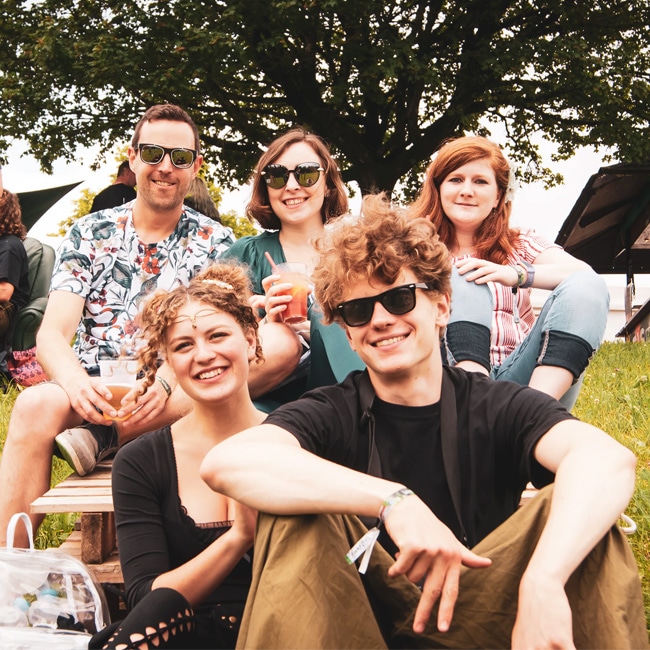Corruption in sport: From the playing field to the field of ethics

Corruption in sport: From the playing field to the field of ethics
Opinion + AnalysisBusiness + LeadershipHealth + WellbeingSociety + Culture
BY David Burfoot 22 MAR 2019
Play fair or play to win. The interests of an individual player versus the team. Bad leaders who get good results.
These are just some of the common ethical tensions occurring throughout elite Australian sport. And they lead to corruption.
The Ethics Centre undertook two high profile reviews of sporting organisations over the past 18 months, the Australian Olympic Committee (AOC) and Cricket Australia (CA).
Australian Olympic Committee
Our AOC review explored the comparison between sportsmanship and gamesmanship. Sportsmanship is the fair, honest and decent treatment of others in competition. Gamesmanship, on the other hand, is built on the principle that winning is everything. Athletes and coaches are encouraged to plot, ploy and bend the rules wherever possible in order to gain a competitive advantage over opponents.
Bridging the two approaches was problematic. It culminated in disenchantment, frustration and an organisational culture within AOC that neither represented the best of sport or organisational administration.
The Ethics Centre delivered a warts-and-all report with 17 recommendations, all of which were accepted.
Recent discussions with AOC reveal a major shift in the culture of the organisation over the last 12 months, under the leadership of CEO Matt Carroll and the head of people and culture, Amie Wallis. AOC staff need to be congratulated for their achievements.
Ball tampering and Cricket Australia
The other engagement was with Cricket Australia – a culture and governance review in response to the ball tampering incident in South Africa in March 2018, something that was clearly against the rules.
Initial attempts by players to conceal what they were doing was testament to this, but it wasn’t as clean cut as that. The incident seemed to represent an attack on something sacred to Australians. Many fans reacted as if they were personally afflicted.
Our subsequent interviews and surveys with CA staff, players, officials, sponsors and members of the public often explored the difference between sportsmanship and gamesmanship.
Comparisons were drawn between ball tampering, sledging and the underarm bowling incident in 1981 during a One Day International cricket match between Australia and New Zealand.
Sporting HR executives
We recently had the good fortunate of being invited to a discussion about such issues with a group of HR executives, representing some of the major professional sporting organisations in Australia, from Horse Racing to Rugby, organised by Mercer Australia.
We put to them the observation that when there is fraud in government, the actions are often labelled corruption, as they signify a greater social betrayal than a breach of the law. Fraud in the private sector doesn’t attract the same moral outrage and avoids the label of corruption. But there is one exception. Sport also uses the word corruption to describe fraudulent behaviour. We asked why.
The group started with the suggestion people take sport personally, as we all feel part of it and like we own it. We play it to pursue the best in us, we barrack for our team, our kids play it, and we use it as a tool to teach our children about values and what is important in life. We feel obliged to have an opinion about it, perhaps as Australians.
This is probably why people feel fraud in sport is a moral issue that goes beyond compliance with the law, a social ‘evil’ that the word ‘corruption’ better conveys. There was also the feeling that corruption is used because it reveals the interconnected network that comes with fraud in sport.
When asked about the dilemmas in sport more broadly, many spoke about the challenge players experience balancing their need to win and earn income, with their long-term wellbeing. Players often hide injuries to avoid being dropped from teams. These injuries are often physical, and sometimes mental. The period where an athlete is most successful financially is narrow. This creates pressure to sacrifice long-term health.
As HR professionals they also spoke of their dilemmas, when they need to balance advocacy for the individual player with the best interests of the company or business side of the sport. They spoke of this also in relation to the management of the team, when the coach feels the need to let someone play because their family is present, even though it may not be in the best interest of a win.
They spoke about how officials can overlook bad leadership when the characters themselves raise the winning morale of teams. Some spoke about the challenges of being considerate of a person’s background, but also being clear that it did not excuse bad behaviour such as sexual harassment.
We see related dilemmas in other sectors currently under the public spotlight. It is accepted that the unique relationship between sport and ethics has been neglected by philosophers.
There may be much to be learned by our experience of sport, and how its values are brought to the wider theatre of life. These discussions help us reach a better understanding about these relationships.
Ethics in your inbox.
Get the latest inspiration, intelligence, events & more.
By signing up you agree to our privacy policy
You might be interested in…
Opinion + Analysis
Society + Culture
The art of appropriation
Opinion + Analysis
Business + Leadership, Relationships
Workplace romances, dead or just hidden from view?
Opinion + Analysis
Business + Leadership
Political aggression worsens during hung parliaments
Opinion + Analysis
Business + Leadership, Politics + Human Rights, Science + Technology
Not too late: regaining control of your data
BY David Burfoot
David has worked in the not-for-profit, public and private sectors domestically and internationally for organisations as diverse as the United Nations Development Program, Deloitte, the NSW Independent Commission Against Corruption and Sydney University. He has been an anti-corruption specialist with a number of government agencies and held senior positions responsible for corporate planning, change and internal communications.
Can robots solve our aged care crisis?

Can robots solve our aged care crisis?
Opinion + AnalysisBusiness + LeadershipHealth + WellbeingScience + Technology
BY Fiona Smith 21 MAR 2019
Would you trust a robot to look after the people who brought you into this world?
While most of us would want our parents and grandparents to have the attention of a kindly human when they need assistance, we may have to make do with technology.
The reason is: there are just not enough flesh-and-blood carers around. We have more seniors entering aged care than ever before, living longer and with complex needs, and we cannot adequately staff our aged care facilities.
The percentage of the Australian population aged over 85 is expected to double by 2066 and the aged care workforce would need to increase between two and three times before 2050 to provide care.
The looming dilemma
With aged care workers among the worst-paid in our society, there is no hope of filling that kind of demand. The Royal Commission into aged care quality and safety is now underway and we are facing a year of revelations about the impacts of understaffing, underfunding and inadequate training.
Some of the complaints already aired in the commission include unacceptably high rates of malnutrition among residents, lack of individualised care and cost-cutting that results in rationing necessities such as incontinence pads.
While the development of “assistance robots” promises to help improve services and the quality of life for those in aged care facilities, there are concerns that technology should not be used as a substitute for human contact.
Connection and interactivity
Human interaction is a critical source of intangible value for the development of human beings, according to Dr Costantino Grasso, Assistant Professor in Law at Coventry University and Global Module Leader for Corporate Governance and Ethics at the University of London.
“Such form of interaction is enjoyed by patients on every occasion in which a nurse interacts with them. The very presence of a human entails the patient value recognising him or her as a unique individual rather than an impersonal entity.
“This cannot be replaced by a robot because of its ‘mechanical’, ‘pre-programmed’ and thus ‘neutral’ way to interact with patients,” Grasso writes in The Corporate Social Responsibility And Business Ethics Blog.
The loss of privacy and autonomy?
An overview of research into this area by Canada’s McMaster University shows older adults worry the use of socially assistive robots may lead to a dehumanised society and a decrease in human contact.
“Also, despite their preference for a robot capable of interacting as a real person, they perceived the relationship with a humanoid robot as counterfeit, a deception,” according to the university.
Older adults also perceived the surveillance function of socially assistive robots as a threat to their autonomy and privacy.
A potential solution to the crisis
The ElliQ, a “home robot” now on the market, is a device that looks like a lamp (with a head that nods and moves) that is voice activated and can be the interface between the owner and their computer or mobile phone.
It can be used to remind people to take their medication or go for a walk, it can read out emails and texts, make phone calls and video calls and its video surveillance camera can trigger calls for assistance if the resident falls or has a medical problem.
The manufacturer, Intuition Robotics, says issues of privacy are sorted out “well in advance”, so that the resident decides whether family or anyone else should be notified about medical matters, such as erratic behaviour.
Despite having a “personality” of a helpful friend (who willingly shoulders the blame for any misunderstandings, such as unclear instructions from the user), it is not humanoid in appearance.
While ElliQ does not pretend to be anything but “technology”, other assistance robots are humanoid in appearance or may take the form of a cuddly animal. There are particular concerns about the use of assistance robots for people who are cognitively impaired, affected by dementia, for instance.
While it is a guiding principle in the artificial intelligence community that the robots should not be deceptive, some have argued that it should not matter if someone with dementia believes their cuddly assistance robot is alive, if it brings them comfort.
Ten tech developments in Aged Care
1. Robotic transport trolleys:
The Lamson RoboCart delivers meals, medication, laundry, waste and supplies.
2. Humanoid companions:
AvatarMind’s iPal is a constant companion that supplements personal care services and provides security with alerts for many medical emergencies such as falling down. Zora, a robot the size of a big doll, is overseen by a nurse with a laptop. Researchers in Australia found that it improved the mood of some patients, and got them more involved in activities, but required significant technical support.
3. Emotional support:
Paro is an interactive robotic baby seal that responds to touch, noise, light and temperature by moving its head and legs or making sounds. The robot has helped to improve the mood of its users, as well as offers some relief from the strains of anxiety and depression. It is used in Australia by RSL LifeCare.
4. Memory recovery:
Dthera Sciences has built a therapy that uses music and images to help patients recover memories. It analyses facial expressions to monitor the emotional impact on patients.
5. Korongee village:
This is a $25 million Tasmania facility for people with dementia, comprising 15 homes set within a small town context, with streets, a supermarket, cinema, café, beauty salon and gardens. Inspired by the dementia village of De Hogeweyk in the Netherlands, where residents have been found to live longer, eat better, and take fewer medications.
6. Pub for people with dementia:
Derwen Ward, part of Cefn Coed Hospital in Wales, opened the Derwen Arms last year to provide residents with a safe, but familiar, environment. The pub serves (non-alcoholic) beer, and has a pool table, and a dart board.
7. Pain detection:
PainChek is a facial recognition software that can detect pain in the elderly and people living with dementia. The tool has provided a significant improvement in data handling and simplification of reporting.
8. Providing sight:
IrisVision involves a Samsung smartphone and a virtual reality (VR) headset to help people with vision impairment see more clearly.
9. Holographic doctors:
Community health provider Silver Chain has been working on technology that uses “holographic doctors” to visit patients in their homes, creating a virtual clinic where healthcare professionals can have access to data and doctors.
10. Robotic suit:
A battery-powered soft exoskeleton helps people walk to restore mobility and independence.
MOST POPULAR
ArticleHEALTH + WELLBEING
HSC exams matter – but not for the reasons you think
EssayBUSINESS + LEADERSHIP
Has passivity contributed to the rise of corrupt lawyers?
BY Fiona Smith
Fiona Smith is a freelance journalist who writes about people, workplaces and social equity. Follow her on Twitter @fionaatwork
What ethics should athletes live by?

What ethics should athletes live by?
Opinion + AnalysisHealth + WellbeingRelationships
BY The Ethics Centre 10 MAR 2019
Athletes are bound by multiple codes – including the formal rules of the games they play and the informal conventions that define what is deemed to be acceptable conduct.
Professional athletes are often bound by a more stringent code that governs many aspects of their public and private lives. In an era of social media and phone cameras, lucrative sponsorships and media rights, online sports betting and performance enhancing drugs, there is very little that isn’t regulated, measured or scrutinised.
The culture of sport
The formal rules of any game establish the minimum standards that bind players and officials equally in order to ensure a fair contest. Not surprisingly, the formal rules are relative to the sports that they define: you can tackle someone to the ground in a rugby match (provided they’re holding the ball), but it would be deemed unacceptable in tennis.
But there are also conventions and informal obligations that define the culture of sport. For example, most sports establish informal boundaries that seek to capture a spirit of good sportsmanship. The cricketer who refuses to “walk” after losing their wicket – or who delivers a ball under-arm – may not be breaking any formal rule, but they’ll be offending the so-called spirit of cricket.
The sanctions for such an offence may be informal, but may blight that player’s career.
A question of trust
In sport, the bottom line is trust. Sportspeople are stewards for the games they play – with an obligation not to destroy the integrity of the sports in which they participate. Athletes tend to be intensely competitive, seeking victory for themselves, for their team or sometimes their nation.
Professional sports sell themselves to the public on the basis that the contests are real and, hopefully, fair. Every time two teams or competitors walk out onto the field of play, they place so much at stake – far more than just the result of one game.
That is why evidence of match fixing, doping or cheating is so destructive – it destroys public trust in the veracity of the competition that people pay to watch. It damages the reputation of the sport. And it is ultimately self-defeating – always leaving doubt in the dishonest victor’s mind, denying forever the satisfaction of a honest win.
Ethics in your inbox.
Get the latest inspiration, intelligence, events & more.
By signing up you agree to our privacy policy
You might be interested in…
Opinion + Analysis
Business + Leadership, Health + Wellbeing, Science + Technology
Can robots solve our aged care crisis?
Opinion + Analysis
Relationships, Society + Culture
Nothing But A Brain: The Philosophy Of The Matrix: Resurrections
Opinion + Analysis
Relationships
Only love deserves loyalty, not countries or ideologies
Opinion + Analysis
Health + Wellbeing, Politics + Human Rights
Don’t throw the birth plan out with the birth water!
BY The Ethics Centre
The Ethics Centre is a not-for-profit organisation developing innovative programs, services and experiences, designed to bring ethics to the centre of professional and personal life.
Want your kids to make good decisions? Here’s what they need to learn

Want your kids to make good decisions? Here’s what they need to learn
Opinion + AnalysisHealth + Wellbeing
BY Matthew Beard 12 DEC 2018
Ask just about any parent what they want for their children and they’ll give you roughly the same answers: we want our kids to be happy, healthy and – perhaps most importantly – good.
For many parents, the goal is to raise children who are better than they are, contribute positively to the world around them, challenge cruelty, injustice and ignorance in the world and make a positive difference in other people’s lives.
Basically, what they’re wanting is that their kids grow up to be ethical people. So, if that’s what so many of us want, it’s worth understanding exactly what ethics is and how we might light the ethical spark in the next generation.
Ethics is a branch of philosophy – it asks questions about the nature of goodness, what makes something right and wrong, and what makes life worth living. As a branch of philosophy, it also leaves no stone unturned. It interrogates any and every claim about what’s right, what’s wrong and what’s ‘normal’.
Whenever we make a choice, we change the world in some small way. Before us are a whole bunch of different possible worlds – it’s up to us to decide which one we’ll turn into reality. Ethics helps us make sure we’re choosing the best of those possible worlds, but it takes practice to do it well.
That means if we’re going to help our kids be ethical people, we need to model ethical thinking in our homes and classrooms, on sports fields and video games and wherever kids are making decisions.
But how do we do it? Here are a few tried and true techniques the ABC’s Short & Curly team have used over the last few years.
1. Don’t be afraid to say ‘I don’t know’
It can be scary to say “I don’t know” – especially when we’re having a conversation with kids. As adults, we’re supposed to have all the answers, right? The problem is, sometimes we don’t. And neither do the young people we’re talking to.
The more we pretend we know it all, the more self-conscious others feel about engaging us in a real conversation, or worse – disagreeing with us! Philosophers use discussions and debate as a team activity – we use disagreement and criticism as a way to work together to find out what’s true.
What’s more, our beliefs about how the world works are often conditioned on what we’ve learned or been told is normal. What we know about fairness, honesty or whatever the topic is might not be the final answer – it could be conditioned by norms and beliefs we’ve been conditioned to believe, even if they don’t hold up to close analysis.
2. Be imaginative
Martha Nussbaum, one of the world’s pre-eminent philosophers, says “you can’t really change the heart without telling a story.” We’re narrative creatures – we’ve always used parables, fables, literature and film as ways of understanding the world around us.
Philosophers have tested their ideas through thought experiments and hypotheticals throughout time. They’re super weird, but they make for great road-trip fodder or dinner table debates.
Ethical reflection demands imagination. It requires us to be able to understand experiences we haven’t lived through and to empathise with people who might be radically different to us.
The next time you’re reading a book or watching a movie with your young one, that’s a moment for reflection. Did those characters do the right thing? How do you think that person felt? Would it have been OK if they’d broken that promise?
3. Don’t shut down a question
Some of our favourite one liners are actually really good ways of undermining ethical conversations. “Everybody does it”, “because I said so” and “you’ll understand when you’re older” are good examples. They rely on authority, tradition or experience as ways to cut off what might be a more productive conversation.
Sometimes, there’s not time for an ethical discussion, but rather than shutting it off with a one-liner, make a commitment to talk about it in more detail later, when you’ve got more time to explain yourself.
4. Question your assumptions
Our minds love telling stories – and we hate plot holes. If we don’t have the full story, we’ll often fill in the gaps with assumptions or inferences that don’t capture the full picture. Ethical conversations work best when they start by questioning what we think we know for sure. Are we starting our discussion on a good foundation?
5. Be curious and research
As well as checking our assumptions, ethics requires us to be curious and informed about the world around us. As much as many philosophers would beg to differ, we can’t understand the world from an armchair.
We need to do some research and uncover relevant facts. Bonus – while you’re doing some research together, you might be able to work together to understand the difference between a fact and an opinion, spot dodgy sources or filter out fake news.
6. Listen to and test your emotional responses
Our emotions are an important part of the way we make judgements, but they can sometimes run wild and lead us astray. Just because we find something disgusting, offensive or hurtful, doesn’t make it wrong. And just because we find something pleasant, fun or funny doesn’t mean it’s OK.
Add “yuck” and “yum” to your list of banned arguments – just because something makes you feel squeamish doesn’t make it bad. Listen to your emotions, but get curious about them – they need to be tested like everything else.
One final note: these tips won’t guarantee a kid won’t do the wrong thing sometimes – like all of us. But it will help you have a shared language for communicating, in a meaningful way, why what they did was wrong.
We all make judgements – it’s part of who we are – ethics helps us build the skills and character to ensure we’re making those judgements in ways that are alive to the world around us and the people within it. And like any skill, it’s easier to master if you start young.
The Short & Curly Guide to Life
What makes something good or bad?
Why are things the way they are? How come it’s so hard to work out the right thing to do? The Short & Curly Guide to Life is an imaginative look at some of life’s biggest and trickiest questions. Figuring out what’s right is way more fun than you think!
Short & Curly Guide to Life is on sale at book stores around Australia and via major online retailers. You can also tune into the ABC Radio podcast, Short & Curly, here.
Matt Beard is the resident philosopher on the ABC Podcast Short & Curly, and the author of The Short & Curly Guide to Life (Penguin Random House). Find him on Twitter @matthewtbeard
Ethics in your inbox.
Get the latest inspiration, intelligence, events & more.
By signing up you agree to our privacy policy
You might be interested in…
Opinion + Analysis
Health + Wellbeing, Politics + Human Rights, Relationships
People with dementia need to be heard – not bound and drugged
Opinion + Analysis
Health + Wellbeing, Relationships
Exercising your moral muscle
Opinion + Analysis
Health + Wellbeing
The virtues of Christmas
Opinion + Analysis
Politics + Human Rights, Health + Wellbeing, Society + Culture
I changed my mind about prisons
BY Matthew Beard
Matt is a moral philosopher with a background in applied and military ethics. In 2016, Matt won the Australasian Association of Philosophy prize for media engagement. Formerly a fellow at The Ethics Centre, Matt is currently host on ABC’s Short & Curly podcast and the Vincent Fairfax Fellowship Program Director.
Big Thinker: Temple Grandin
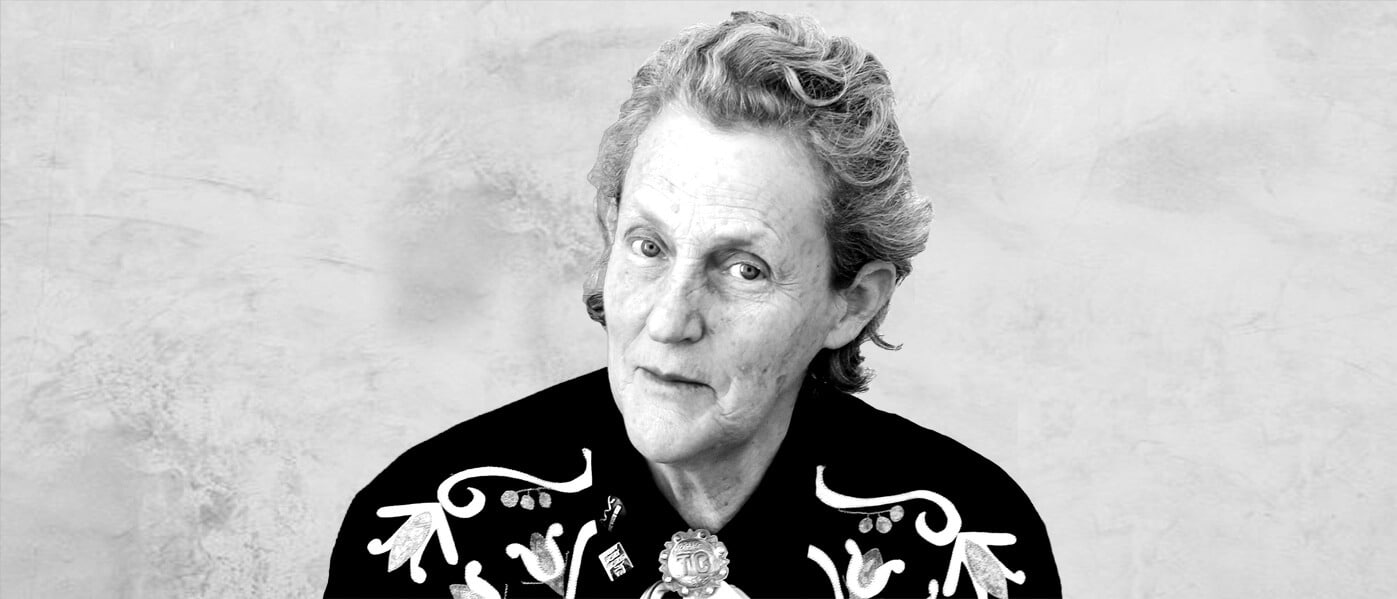
Big Thinker: Temple Grandin
Big thinkerHealth + WellbeingRelationships
BY The Ethics Centre 4 DEC 2018
Turning a perceived disability into a new way of solving problems, Temple Grandin (1947—present) has revolutionised the meat-processing industry and changed the way the world views autism.
Temple Grandin is an autism advocate and animal scientist who works to improve animal treatment in the livestock industry. Grandin has also changed public perceptions of autism, helping educators to maximise the strengths of those with autism, rather than focusing only on deficiencies.
An animal lover and meat eater, Grandin has used her autistic trait of “thinking in pictures” to design livestock facilities and educate meat produces on how to minimise animal suffering. As a result, she says there’s been ‘light years of improvement’ in an industry where half of all cattle in the United States are handled in facilities she designed.
This isn’t enough for some animal rights activists though, who accuse her of trying to soften the image of a ‘violent’ sector.
Thinking like a cow
Temple Grandin did not talk until she was three and a half years old. She struggled to communicate throughout her childhood, and other students bullied her at school.But there was one high school teacher, Mr Carlock, who saw something special in her. He mentored the troubled girl and encouraged her to study science.
Shocked by the cruelty she saw in abattoirs, Grandin combined her love for science and animals by fixating on designs to improve animal welfare in these facilities. Grandin knew she learned better by visualising, rather than reading and hearing long strings of words. In this respect, her thinking pattern was similar to animals, who don’t ‘speak’ a language.
She observed cattle in slaughterhouses, seeing how they responded to fear, senses, smells and visual memories. When cows can see they’re about to be killed, they panic, fall and injure themselves. To combat this, Grandin invented the curved loading chutes, which block their vision of what’s ahead, keeping them calm.
This not only improves animal welfare, it saves producers the cost of cattle death, injury and bruising – which also reduces the quality of meat. Grandin has spent her career designing livestock facilities to improve the way animals are treated.
In 1997, she worked with McDonalds after activists exposed animal torture on their production plants. She helped the fast food chain clean up cruel practices and restore its public image.
In 2010, Time Magazine named her one of the 100 most influential people in the world for her work in animal welfare.
We need autistic minds
Grandin has also changed public perceptions of autism, a condition relatively unknown when she grew up. She argues people on the autism spectrum – who tend to struggle with verbal communication but think in pictures – can provide more insight in certain fields than those who think in a more conventional mathematical way.
“Visual thinking is an asset for an equipment designer. I am able to ‘see’ how all parts of a project will fit together and see potential problems.”
Grandin encourages teachers to develop the strengths of autistic children, and has devised clever ways to combat perceived flaws.Like many on the spectrum, she is oversensitive to touch. “I always hated to be hugged”, she says.
So at age 18, she built a ‘squeeze machine’ – two hinged wooden boards lined with foam rubber, which allows users to control the amount and duration of pressure applied. Therapy programs across the United States continue to utilise squeeze machines, with research showing they help relieve stress in users.
Hero or villain?
While considered a hero in the autism community, Grandin’s work divides animal welfare activists. People for the Ethical Treatment of Animals (PETA), the world’s largest animal rights group, appreciate and publish her work. Others, like biologist Marc Bekoff, hold that no animal in captivity can enjoy a pleasant life. Bekoff would rather see Grandin encourage people not to consume factory farmed animals; to him, “‘slightly better’ isn’t good enough”.
“No animal who winds up in the factory farm production line has a good or even moderately good life.” – Marc Bekoff
Grandin’s retort is that without meat eaters, farm animals would have no life at all. She argues if animals are going to die anyway, it’s important to minimise their suffering.
Does this apply to humans too?
The New York Times once asked her if she’d consider helping to make capital punishment more humane. Her response was blunt.
“I have read things about the malfunctions of the electric chair… I know how to fix it, but I will not use my knowledge to have any involvement in that. I will not cross the species barrier to help kill people. Period.”
Ethics in your inbox.
Get the latest inspiration, intelligence, events & more.
By signing up you agree to our privacy policy
You might be interested in…
Opinion + Analysis
Relationships, Science + Technology
If humans bully robots there will be dire consequences
Opinion + Analysis
Climate + Environment, Health + Wellbeing
How should vegans live?
Explainer
Health + Wellbeing, Relationships
Ethics Explainer: Eudaimonia
Opinion + Analysis
Relationships, Science + Technology
Injecting artificial intelligence with human empathy
BY The Ethics Centre
The Ethics Centre is a not-for-profit organisation developing innovative programs, services and experiences, designed to bring ethics to the centre of professional and personal life.
The moral life is more than carrots and sticks

The moral life is more than carrots and sticks
Opinion + AnalysisHealth + Wellbeing
BY Matthew Beard 16 NOV 2018
Almost everywhere I go to talk about ethics, I face some variation of the question: ‘Why be ethical?’ The question flummoxes and depresses me.
That’s partly because I can’t help but feel the question is basically ‘What’s in it for me?’ dressed up with a bit of academic, devil’s advocate flavour. But it’s also because to ask that question at all, you’ve got to have a pretty bleak sense of who people, at their core, really are.
But all the same, there are lots of people who have set out to answer precisely this question. Most of them are somehow connected to the world of institutions — government, business, non-profits and so on. You know, all the groups who studies suggest are haemorrhaging trust.
There’s nothing wrong with answering this question per se — in fact, it’s an interesting and challenging project that’s challenged philosophers since more or less the time the disciplined divorced from theology. But the answers are leaving me more-or-less equally disheartened as the questions themselves.
One common answer has to do with trust. And the thinking fits pretty well into the carrot/stick dialectic. The carrot approach goes a bit like this: data tells us ethical organisations are more trusted by other stakeholders, recruit and retain better staff and might even make more money.
The stick approach goes like this: unethical behaviour leads to a decline in trust, which leads to increased regulation, reporting and accountability. It stifles innovation, restricts opportunities and costs money.
The second answer is alluded to in the discussion of trust: regulation. The reason you should be ethical is because if you don’t we’ll catch you and hold you accountable for what you’ve done. People can’t be trusted to do the right thing, so we introduce safeguards to stop them from doing the wrong thing.
These two arguments boil down to self-interest on one hand and fear on the other. They respond to the part of humanity that is self-interested, petty and manipulative. That’s not necessarily a problem — failing to manage this aspect of humanity usually leaves the most vulnerable to suffer — but it’s an incomplete picture of who we are.
“The more we conflate ethics with trust, regulatory standards or “enlightened self-interest”, the less space we allow for morality to play a salvific role — not just to stop bad, but to make good.”
About 250 years ago, the German philosopher Immanuel Kant wrote The Groundwork to the Metaphysics of Morals. Kant, in his brilliant but not-very-pithy way, argued that the only thing that has true moral worth is what he called ‘the good will’. The good will is the desire to do good for its own sake — regardless of the effects. Here’s Kant at his most poetic:
‘Even if by some particular disfavour of fate, or by the scanty endowment of a stepmotherly nature, this will should entirely lack the capacity to carry through its purpose; if despite its greatest striving it should still accomplish nothing, and only the good will were to remain … then, like a jewel, it would still shine by itself, as something that has full worth in itself.’
I worry that the way we talk about ethics today makes the formation of a good will, or some variation on it, impossible. This is because for regulatory and trust-based approaches to ethics, there’s always something outside morality that serves as motivation. It’s Santa Claus for grown-ups: we behave so we get presents instead of coal. And I’m not certain it works — I’m not inclined to trust someone who has ulterior motives for gaining my trust.
What’s more, it’s not clear how this approach to trust applies to groups who don’t need trust — think ‘too big to fail’ — and don’t have to fear regulation (perhaps they’re the ones who make the law). What reasons do they have for doing the right thing? And how might they define the right thing in a more morally sensitive way than pointing to their clean hands in the eyes of the law?
What is missing from this picture is anything that might generate a deep understanding — and love — of what’s good. The more we conflate ethics with trust, regulatory standards or “enlightened self-interest”, the less space we allow for morality to play a salvific role — not just to stop bad, but to make good.
I wholly understand the desire to minimise harm, prevent wrongdoing and serve justice. I also acknowledge the utility value in speaking the language of people’s desires — if people have been taught to think in terms of outcomes and self-interest, we may as well turn it to our advantage. But the more we do it, the more we entrench a mode of thinking that is at best narrow and at worst antithetical to the moral life itself.
It might still be that in the great moral trade-offs of life, protecting the vulnerable is more important that my high-minded philosophy. But we should at least know what we’re turning our back on — because in stopping people from doing bad, we might be preventing them from ever being good.
This article was originally written for Eureka St. Republished with permission.
Ethics in your inbox.
Get the latest inspiration, intelligence, events & more.
By signing up you agree to our privacy policy
You might be interested in…
Opinion + Analysis
Health + Wellbeing, Society + Culture
Why I had a vasectomy at 30
Opinion + Analysis
Health + Wellbeing, Relationships
Ageing well is the elephant in the room when it comes to aged care
Opinion + Analysis
Health + Wellbeing, Relationships
Rationing life: COVID-19 triage and end of life care
Opinion + Analysis
Business + Leadership, Health + Wellbeing
Your donation is only as good as the charity you give it to
BY Matthew Beard
Matt is a moral philosopher with a background in applied and military ethics. In 2016, Matt won the Australasian Association of Philosophy prize for media engagement. Formerly a fellow at The Ethics Centre, Matt is currently host on ABC’s Short & Curly podcast and the Vincent Fairfax Fellowship Program Director.
How to break up with a friend
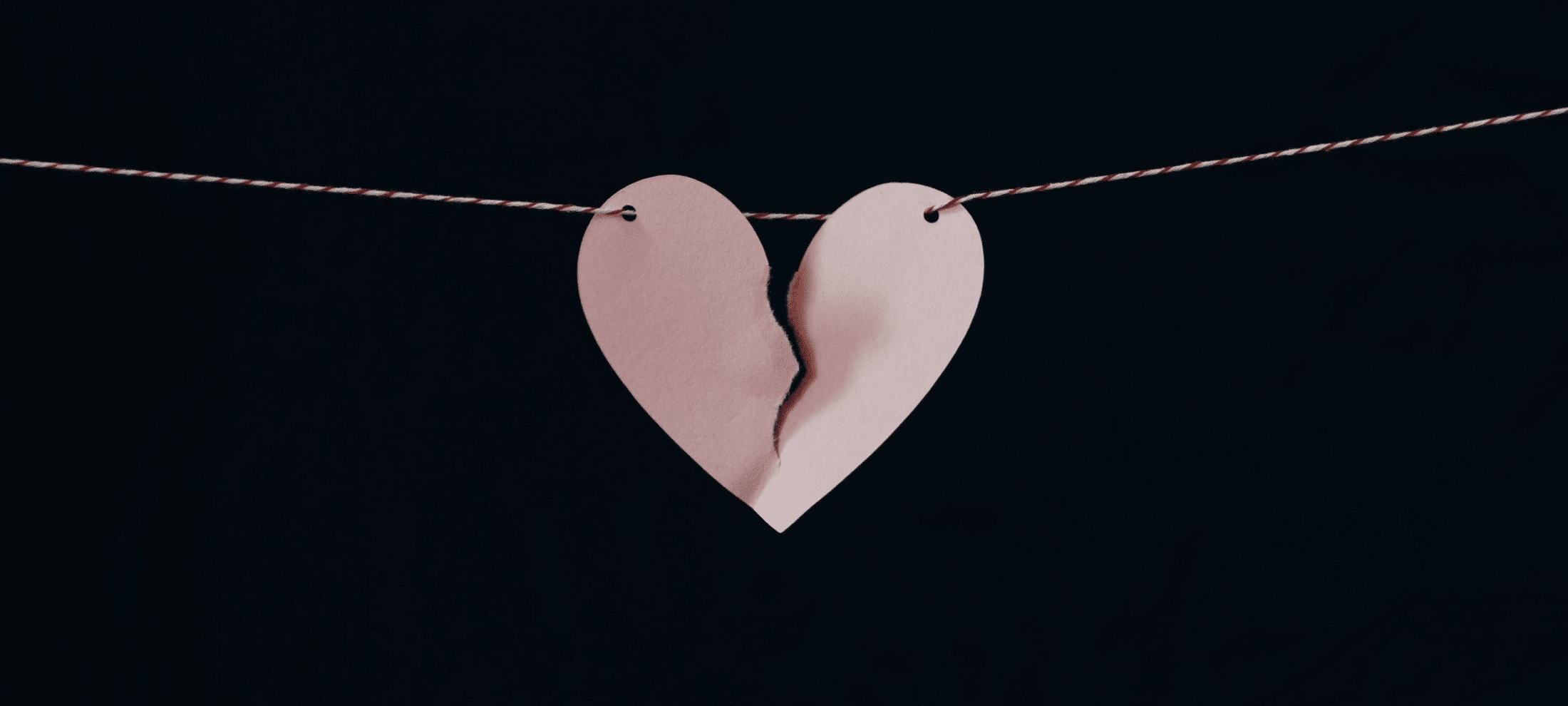
How to break up with a friend
Opinion + AnalysisHealth + WellbeingRelationships
BY Aisyah Shah Idil The Ethics Centre 16 AUG 2018
If your friendship is a battlefield, you’ve got to know when to wave the white flag. How do you break up with a friend – ethically?
It might’ve been a slow fade after leaving high school. A messy split over unpaid bills. Maybe it was an awkward part at the airport, or a text silence that lasted a few months longer than usual.
Though not as lamented as ending a romance, ending a friendship can be just as painful. Maybe even more. While some of that is because of the hurt and disappointment of any unfulfilling relationship, another part can be attributed to its ambiguity.
The due process owed to an ex (counselling, teary conversations, logical explanations to well-meaning buddies and family) doesn’t exist for the friendships in our lives. If we want to break up with a friend, how do we do it ethically?
If you’re keen to rip off the friendship band-aid, keep reading. Here are some questions our Ethi-call counsellors would ask to help you act in line with your morals and values.
1. What is the purpose of friendship?
Let’s get back to basics. Asking yourself what a good friendship looks like can help you see if there’s a disconnect between what you’d like it to be and what it really is.
A good friendship could be one where you:
- Love and accept each other
- Are role models for each other’s children
- Feel safe expressing your honest thoughts
- Feel grateful that you share each other’s lives
If any of these questions cause discomfort, maybe your friendship has crossed a line it shouldn’t have. What is your duty to yourself? Is it fair to expect these things?
2. How could you create the least harm and most benefit?
Owning that your needs aren’t being met is important. But equally as important are the needs your friend is owed in a reciprocal relationship.
- What are your obligations to your friend?
- Have you any part to play in this?
- What would a wise person suggest?
Every relationship takes effort. Part of loving someone, warts and all, is acknowledging the effort is worth it. But when that isn’t true, a breakup may not be the only way to deal with it. Consider if your actions are going to cause more benefit than harm – to all the people involved.
- What are the consequences (of a friendship breakup)?
- Is doing nothing an option? If so, what would be your tipping point?
- What will the lasting impact be?
A breakup isn’t the end of anyone’s story. People carry these formative experiences with them and may do so for the rest of their lives.
3. How can you preserve and prioritise dignity?
If you’ve considered all this and still think you need to end the friendship, remember to be kind. Considering why you were friends in the first place means this transition isn’t about kicking anyone when they’re down.
How will you break up? Does your friendship lend itself to a face-to-face conversation or is it better through email? Is one session or message enough or are more required?
Your friend might not agree with what you consider to be good and right, but handling such a delicate situation in a way that is in line with your moral character might be one of your greatest accomplishments.
Some positive outcomes might even eventuate, such as:
- Renewal of your friendship and commitment to each other
- Knowing that you both did your best
- Revelation in self-knowledge and commitment to personal growth
- Speaking well of each other to mutual friends (and meaning it)
- Shared sense of closure and grief
Friendships and relationships don’t exist in vacuums. Whether good or bad, a history of contact with each other comes with its own particular language, traditions and memories. None of us are the centre of the universe, and believing so runs counter to the reality of multiple subjective experiences. Continuing on that path can not only make it harder for you to be a friend, but for you to be fully human.
Even if it wasn’t love, you shared each other’s lives. And that’s always worth respecting.
If you or someone you know is at risk of harm or feeling suicidal, get help immediately. Call Lifeline 13 11 14 or 000 if life is in danger.
Ethics in your inbox.
Get the latest inspiration, intelligence, events & more.
By signing up you agree to our privacy policy
You might be interested in…
Opinion + Analysis
Relationships
It takes a village to raise resilience
Opinion + Analysis
Health + Wellbeing
Women’s pain in pregnancy and beyond is often minimised
Opinion + Analysis
Relationships
We live in an opinion economy, and it’s exhausting
Opinion + Analysis
Health + Wellbeing, Society + Culture
Why I had a vasectomy at 30
BY Aisyah Shah Idil
Aisyah Shah Idil is a writer with a background in experimental poetry. After completing an undergraduate degree in cultural studies, she travelled overseas to study human rights and theology. A former producer at The Ethics Centre, Aisyah is currently a digital content producer with the LMA.
BY The Ethics Centre
The Ethics Centre is a not-for-profit organisation developing innovative programs, services and experiences, designed to bring ethics to the centre of professional and personal life.
When you hire a philosopher as your ethicist, you are getting a unicorn

When you hire a philosopher as your ethicist, you are getting a unicorn
Opinion + AnalysisHealth + Wellbeing
BY Matthew Beard 14 AUG 2018
If a tree falls on a philosopher in a forest and there is no one around to hear it, does she make a sound? Probably not, because she is undercover.
Philosophers are working in business and are applying their disciplined thinking processes to complex commercial and ethical problems – but you won’t find them listed on the organisational chart as philosopher-in-chief and seldom as the designated “ethicist”.
“We are unicorns, we are a bit rare”, says business ethicist and philosopher, Dr Petrina Coventry, who says she has spent her career being called something else.
“I’ve always hidden behind the HR brand because it is easier for people to cope with”, she explains. “If it takes pretending to be a pony to get the message across – so be it. We leave our horns at the door.”
Ethics officers bring a philosophical approach to thinking, decision making, strategy, branding, and communications. They work with all functions (marketing, legal, human resources, finance and others) to find the right way to do business.
“They are not compliance officers and they are not lawyers”, she says. They may carry business cards that announce them as chiefs of staff, people and performance or, occasionally chief operating officer.
Coventry says ethicists operating under other descriptors are trying to not “frighten the horses”.
“Going out and proud and saying you are a chief ethics offer will not get you very far”, says Coventry, a senior partner at Singapore based private equity company COI Capital and non-executive director of Beston Global Goods. She is also an industry professor and director of development at the University of Adelaide.
“People are frightened of the word [ethics]. They think you are making moral judgements about their character, that you are analysing them into ‘good’ or ‘bad’ based on their character, decision making or what they represent. And so, I try to avoid using the word ‘ethics’ if I can, because you can over use it and people just switch off.
“I don’t care what [title] I have to hide behind, whether it is ombuds or human resources. If it is not frightening, yet it helps them be a better person, be less stressed, be better thinkers … they are intrigued and they want more.” – Petrina Coventry
While being a company “ethicist” can be challenging to others, Philosophy has its own battle for acceptance in the corporate world.
Coventry, who has a doctorate in philosophy, says there is some suspicion in business circles that the discipline is esoteric, despite some of the world’s most successful executives and entrepreneurs having studied for philosophy degrees.
These people include activist investor Carl Icahn, hedge fund manager George Soros, former Time Warner CEO Gerald Levin, PayPal co-founder Peter Thiel, LinkedIn cofounder Reid Hoffman, and Flickr cofounder and Slack CEO Stewart Butterfield. Not too flaky then.
Given the predominance of Silicon Valley CEOs on that list, it is perhaps unsurprising that technology companies are at the forefront of embracing ethicists (outside of the research, medical, and pharmaceutical sectors, which have a long history with ethics committees).
At this stage, most of the ethicists in tech have backgrounds in other areas, such as computer science (like former Google in-house design ethicist, Tristan Harris).
Coventry sees the beginning of a shift towards ethics, and away from compliance. She says:
“Compliance is cure, ethics is prevention.”
“It is a bit like having a doctor in-house rather than having to cart everybody off to the hospital because we forgot to go to the doctor.”
Outside of Silicon Valley, CEOs and their organisations are increasingly interested in acquiring more ethics expertise, especially now that scandals and failures now appear so frequent they may still shock, but no longer surprise.
“Stakeholder expectations have changed in the last ten years, partly due to increased transparency around corporate actions, but also due to the corresponding decline in trust regarding corporations and their leaders”, says Coventry, who has worked at executive level in “HR” at Santos, General Electric, and the Coca Cola Company.
Her first ethics role was in the 1990s, when she headed GE’s “ombuds” area in Asia, dealing with breaches in compliance and policy and workplace issues.
“The ombuds person is called on to mediate, negotiate, analyse problems that occur, and provide wise counsel and judgement, which is really what ethicists do”, she says.
In a world where the rules are constantly changing, situations are often unclear and legislation is unable to keep up with advances in science and technology, people have to make their own judgement calls about what is the right thing to do.
This has generated an interest in people who have an arts or philosophy background and can help develop better leaders and companies, she says.
“They are seeking a less emotional, less stressful, more thoughtful, more mindful, more sustainable approach, culture and leadership – and philosophy is born out of that.”
The Ethics Alliance brings different sectors of business together to discuss topics of importance.
Ethics in your inbox.
Get the latest inspiration, intelligence, events & more.
By signing up you agree to our privacy policy
You might be interested in…
Opinion + Analysis
Health + Wellbeing, Relationships
Pop Culture and the Limits of Social Engineering
Opinion + Analysis
Business + Leadership, Health + Wellbeing
Tips on how to find meaningful work
Opinion + Analysis
Health + Wellbeing, Politics + Human Rights, Relationships
People with dementia need to be heard – not bound and drugged
Opinion + Analysis
Politics + Human Rights, Health + Wellbeing, Society + Culture
I changed my mind about prisons
BY Matthew Beard
Matt is a moral philosopher with a background in applied and military ethics. In 2016, Matt won the Australasian Association of Philosophy prize for media engagement. Formerly a fellow at The Ethics Centre, Matt is currently host on ABC’s Short & Curly podcast and the Vincent Fairfax Fellowship Program Director.
Why your new year's resolution needs military ethics

Why your new year’s resolution needs military ethics
Opinion + AnalysisHealth + WellbeingRelationships
BY The Ethics Centre 13 AUG 2018
Weight loss goals and the laws of armed conflict seem pretty far removed. But stick with us! Military ethics provide useful principles to test the worth of our new year’s resolutions.
The ethics of war are based on making sure the inevitable harm, pain and suffering caused by violence is minimised as much as possible. Most resolutions also involve some pain and suffering. After all, we don’t need resolve to do what’s easy! So let’s apply these principles of warfare to the hardships of our resolutions and check if they’re are morally justified.
Just war theory, the most common approach to the ethics of war, says war is justified only if it satisfies a set of conditions. These include:
Just cause
War is only just when it is fought in response to a serious violation of state or human rights (basically, because war causes death and destruction it has to be responding to a grievous offence).
Right intention
The declaration of war is not motivated by private, self-interested or vicious intentions but out of a desire to bring about a just outcome.
Legitimate authority
Only the leader or leaders of a political community have the right to declare war.
(Macro) proportionality
The peace the war aims to create has to be preferable to the way the world would be if no war was fought (a nuclear war will almost always be disproportionate).
Last resort
Are there less harmful measures than war which might bring about peace?
Probability of success
Do not undertake the pain and suffering of war if there is no chance of winning, otherwise lives are wasted in vain.
(Micro) proportionality
The benefits gained from a military operation must outweigh the harms it inflicts.
Discrimination
Only combatants may be targeted by military attacks. Civilians are off limits.
Good goal
An ethical resolution will aim to achieve something good (health, travel, education). Don’t aim to do something you know to be bad (“This year I resolve to make profits at any cost”).
Right intention
Is your resolution motivated by a genuine desire for self-improvement? Or is it motivated by shame, peer pressure, greed, vanity or fear? If the latter is true, it might be worth considering whether it’s really a resolution worth making.
Is your resolution motivated by a genuine desire for self-improvement? Or is it motivated by shame, peer pressure, greed, vanity or fear?
Accept your limits
You only have the ‘authority’ to make resolutions for things within your control. Don’t resolve to get a promotion at work. Instead, resolve to reinvigorate your attitude at work so your application for promotion has the best chance of success. But remember, getting the promotion is outside your control.
Holistic improvement
Make sure you will be a better person overall after succeeding in your resolution. You might be able to run a marathon, but make sure it isn’t so detrimental to your health, relationships, work or other interests that you’re worse-off overall.
Avoid drastic measures
Have you tried less intense measures to achieve your goals? Maybe before you sign up for a 10 day silent yoga retreat you could try signing up for a weekly class and see if it helps.
Probability of success
Set realistic goals you can actually achieve. If you and your partner aim to spend more time together after three date nights in the last year, resolving to have a weekend away once a fortnight might be a bit extreme. Be honest to avoid setting yourself up for failure and making the effort and sacrifices you make futile.
Cost/benefit analysis
Is the inconvenience, expense or pain of your resolution worth it for the goal you are trying to achieve? Trying to have a body like Chris Hemsworth might be more trouble than it’s worth.
Own your resolution
Your resolution is your resolution – everyone except you is an innocent bystander! If you’ve decided to go vegetarian, that’s fine. Insisting everyone in your share house skips on meat to suit your new diet isn’t.
So there you have it – your guide to an ethical new year’s resolution with help from military ethics. These steps won’t guarantee your resolution is successful but they will guarantee it’s a resolution worth making. For tips on how to form the resolve, perseverance and courage it takes to stick to your new commitment, you might want to talk to a soldier.
Ethics in your inbox.
Get the latest inspiration, intelligence, events & more.
By signing up you agree to our privacy policy
You might be interested in…
Opinion + Analysis
Society + Culture, Relationships
Do we exaggerate the difference age makes?
Opinion + Analysis
Health + Wellbeing, Relationships
How to deal with people who aren’t doing their bit to flatten the curve
Big thinker
Politics + Human Rights, Relationships
Big Thinker: Dennis Altman
Opinion + Analysis
Relationships, Society + Culture
But how do you know? Hijack and the ethics of risk
BY The Ethics Centre
The Ethics Centre is a not-for-profit organisation developing innovative programs, services and experiences, designed to bring ethics to the centre of professional and personal life.
Big Thinker: Shulamith Firestone

Big Thinker: Shulamith Firestone
Big thinkerHealth + WellbeingRelationships
BY The Ethics Centre 18 JUL 2018
Women’s oppression comes down to biological differences – so get rid of them. If you can put a man on the moon, you make a mechanical womb and gestate a baby without a woman.
These were the arguments of Shulamith Firestone (1945—2012), writer, artist and feminist, whose book, The Dialectic of Sex, argued the structure of the biological family was primarily to blame for the oppression of women.
With a radical and uncompromising vision, she advocated for the development of reproductive technologies that would free women from the responsibilities of childrearing, dismantle the hierarchy of family life, and set the foundations for a truly egalitarian society.
The girlhood of a radical thinker
Firestone was born to an Orthodox Jewish family in Ottawa, Canada in 1945. Her mother was a Holocaust survivor that came from a lineage of rabbis and scholars, and her father was a travelling salesmen.
Firestone possessed a fierce intelligence and strong will from a young age and regularly came into conflict with the stringent gender norms that her religious father imposed. When she questioned why she had to make her brother’s bed in the morning, her father replied, “because you’re a girl.”
In the late 1960s, Firestone left home to study art in Chicago and then New York, where she joined left wing political movements and came of age intellectually. While she was free from her father’ tyranny, she saw the same sexism that had controlled her life at home across all areas of society. It was a time when women held almost no major elected positions, abortion was illegal, rape a stigma to be borne alone, and home making seen as a woman’s highest calling.
As a response to this, Firestone began studying history and feminist literature, hoping to understand the root cause of women’s oppression, which resulted in the publication of The Dialectic of Sex in 1970.
The Dialectic of Sex
While other feminist writers and philosophers proposed that the cause of women’s oppression was, at root, political and cultural, Firestone made a radical departure, positing that the inequality between men and women stemmed from fundamental biological differences – most notably that women had to carry, give birth to, and nurse babies.
This biological reality, Firestone argued, created an “unequal power distribution” within families. Because women were responsible for a child’s care, they became dependant on men to provide for them while they were unable to leave the home. This in turn gave rise to a hierarchy within the family in which babies were dependant on mothers, mothers on their husbands, and husbands on no one.
Firestone argued that over the course of human history, society itself had come to mirror the structure of the biological family and was the source from which all other inequalities developed.
Women were expected to stay at home and care for children, which held them back from becoming financially independent and achieving political agency.
If the feminist movement was to overcome male domination, it had to reckon with the fundamental biological reality that underpinned it.
“The end goal of feminist revolution must be… not just the elimination of male privilege, but of the sex distinction itself.”
While questioning the fundamental biological conditions was not conceivable in previous centuries, Firestone said the great advancements that had accrued in science and technology in the 20th century made it possible to imagine a future in which the reproductive role of women was outsourced to “cybernetic machines”. She believed if the same energy and resources were put into developing reproductive technologies as had been put into other projects, like sending a human to the moon, then it could be achieved in decades.
What held this research back, Firestone suggested, was institutional resistance from men in positions of power who did not want to disrupt the existing hierarchy.
“The problem becomes political … when one realises that, though man is increasingly capable of freeing himself from the biological conditions that created his tyranny over women and children, he has little reason to want to give this tyranny up.”
The true feminist cause, then, was to demand reproductive technology that could free women from what had previously been a biological destiny. Firestone believed if this was achieved, and reproduction was no longer the sole responsibility of women and their bodies, the family would undergo a radical restructuring, a flattening of the patriarchal hierarchy, which would then be mirrored in a more egalitarian society itself.
Brilliant and preposterous
The Dialectic of Sex caused a stir from the moment it was published. It was hard for critics to deny Firestone’s prodigious intellect, but they wrote off her ideas as too radical, too utopian, and too ridiculous to warrant serious engagement. Her theory of gender inequality was called “brilliant” and “preposterous” in the same review by one New York Times critic.
The book’s publication caused a greater rift between Firestone and her family, and her staunch line on biological inequality alienated her from some feminist groups. By the 1980s, when the backlash against radical feminism had taken hold of mainstream American culture, Firestone retreated to a small apartment in Manhattan where she spent her days painting in isolation. She was found dead in August 2012 at the age of 67.
In the 50+ years since Firestone published The Dialectic of Sex, we have seen enormous and rapid technological developments in many areas, and yet reproductive technologies like artificial wombs are still seen as an unlikely and unwanted science from a dystopian sci-fi future. Our culture, for the most part, still associates artificial wombs with the 1932 novel Brave New World, in which Aldous Huxley imagined a future where foetuses are grown in “bottles” in vast state incubators. For Huxley, the idea of severing the biological tie between mother and child was the centrepiece of his dystopian vision, the essential metaphor of a society that had become ethically set adrift.
Reading Firestone’s The Dialectic of Sex – a brilliant, passionate and uncompromising book – forces us to confront that the way technology progresses is informed by political motivations, and that science is not neutral, but can be used to reinforce and perpetuate unequal distributions of power.
Ethics in your inbox.
Get the latest inspiration, intelligence, events & more.
By signing up you agree to our privacy policy
You might be interested in…
Opinion + Analysis
Business + Leadership, Relationships
Game, set and match: 5 principles for leading and living the game of life
Opinion + Analysis
Health + Wellbeing, Relationships
How to deal with people who aren’t doing their bit to flatten the curve
Opinion + Analysis
Relationships, Society + Culture
The problem with Australian identity
Opinion + Analysis
Relationships









